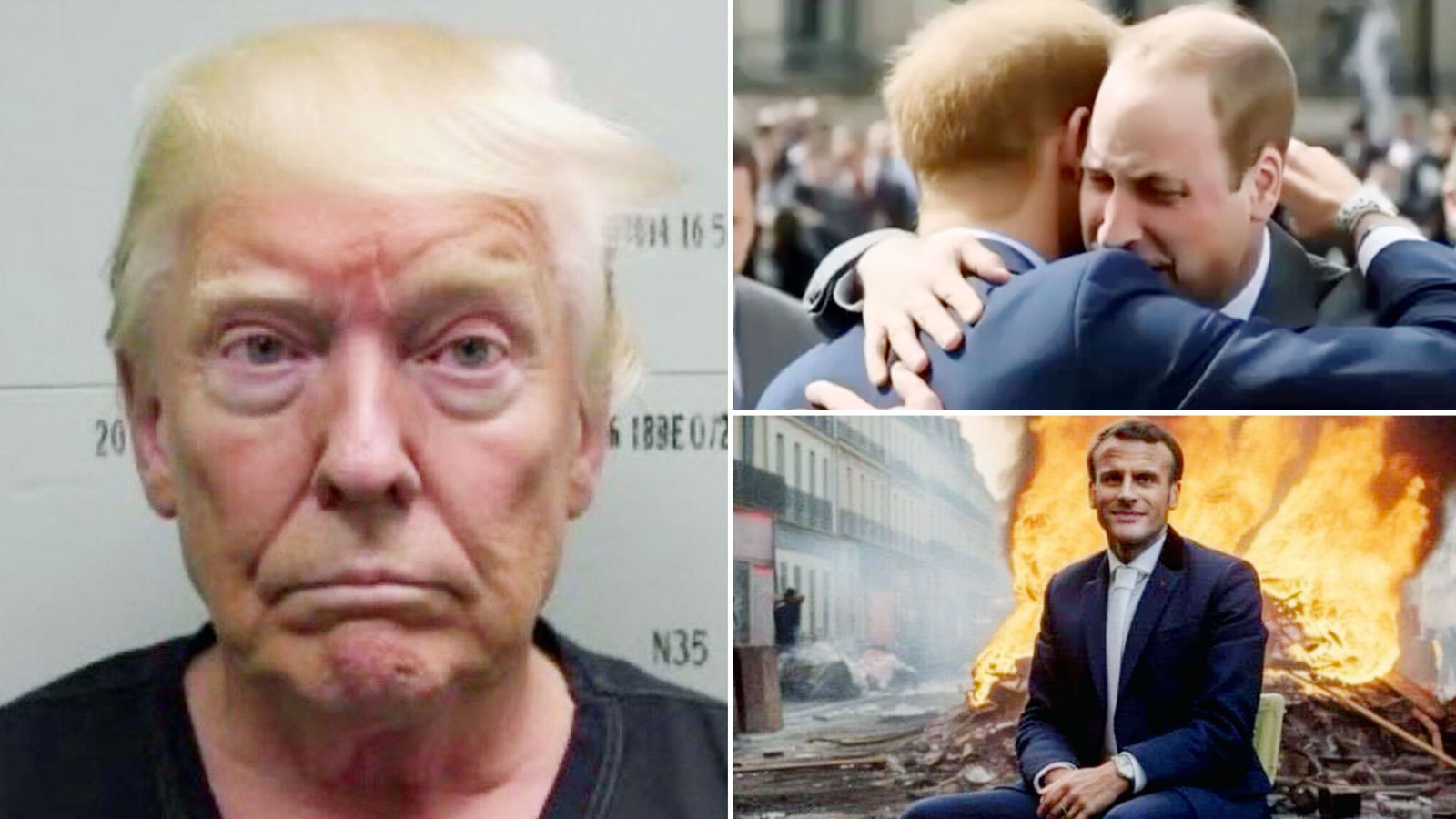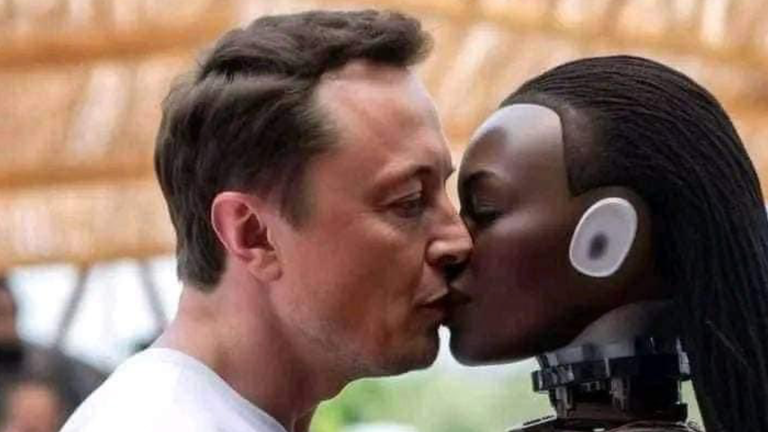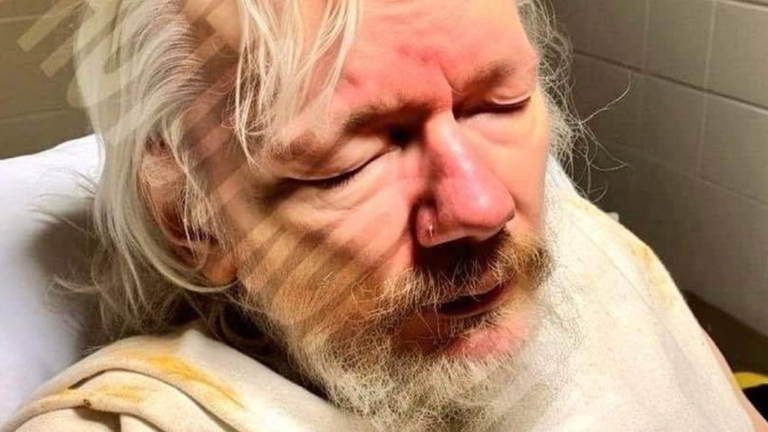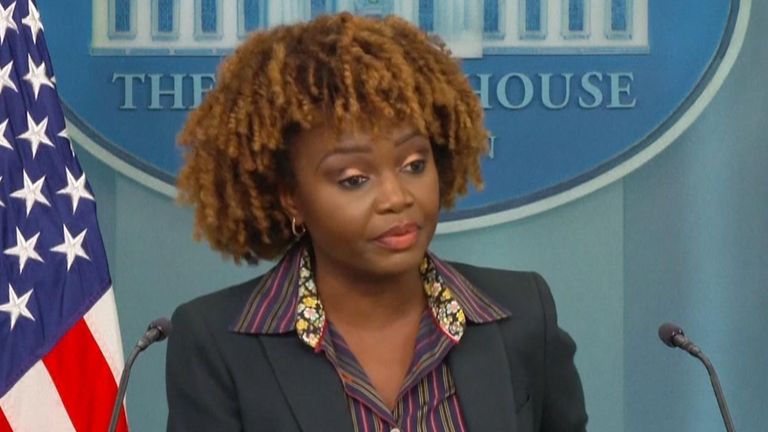The company that owns Facebook and Instagram has said it is planning to label all images on its social media platforms that have been created using artificial intelligence (AI).
Meta, which also owns the Threads social media site, has already been placing “Imagined with AI” labels on photorealistic images created using its own Meta AI feature.
The tech giant said it is now building “industry-leading tools” that will allow it to identify invisible markers on AI-generated images that have come from other sites such as Google, OpenAI, Microsoft or Adobe.
Meta has said it will roll out the labelling on Facebook, Instagram and Threads in the coming months.
Sir Nick Clegg, the former British deputy prime minister who is now Meta’s president of global affairs, wrote in a statement that the move comes during a year when a “number of important elections are taking place around the world”.
He added: “During this time, we expect to learn much more about how people are creating and sharing AI content, what sort of transparency people find most valuable, and how these technologies evolve. What we learn will inform industry best practices and our own approach going forward.”
Sir Nick said the move is important at a time when “the difference between human and synthetic content” is becoming “blurred”.
Meta says it has been working with “industry partners on common technical standards for identifying AI content”, adding that it will be able to label AI-generated images when its technology detects “industry standard indicators”.
The company says the labels will come in “all languages”.
Sir Nick has said it’s not yet possible for Meta to identify all AI-generated content – with those who produce the images able to strip out invisible markers.
He added: “We’re working hard to develop classifiers that can help us to automatically detect AI-generated content, even if the content lacks invisible markers. At the same time, we’re looking for ways to make it more difficult to remove or alter invisible watermarks.”
Sir Nick said this part of Meta’s work is important because the use of AI is “likely to become an increasingly adversarial space in the years ahead”.
“People and organisations that actively want to deceive people with AI-generated content will look for ways around safeguards that are put in place to detect it. Across our industry and society more generally, we’ll need to keep looking for ways to stay one step ahead,” he said.
Meta also plans to add a feature to its platform that will allow people to disclose when they are sharing AI-generated content so the company can add a label to it.
Read more:
Meta boss grilled over child exploitation concerns
Facebook turns 20: From Zuckerberg’s dormitory to a $1trn company
Eight AI-generated images that have caught people out
Taylor Swift targeted in AI images
AI images have proven controversial in recent months – with many of them so realistic users are often unable to tell they are not real.
In January, deepfake images of pop superstar Taylor Swift, which were believed to have been made using AI, were spread widely on social media.
US President Biden’s spokesperson said the sexually explicit images of the star were “very alarming”.
White House Press Secretary Karine Jean-Pierre said social media companies have “an important role to play in enforcing their own rules”, as she urged Congress to legislate on the issue.
A royal reunion that was not all it seemed
In the UK, a slideshow of eight images appearing to show Prince William and Prince Harry at the King’s coronation spread widely on Facebook in 2023, with more than 78,000 likes.
One of them showed a seemingly emotional embrace between William and Harry after reports of a rift between the brothers.
However, none of the eight images were genuine.
Meanwhile, an AI-generated mugshot of Donald Trump when he was formally booked on 13 election fraud charges fooled many people around the world in 2023.




